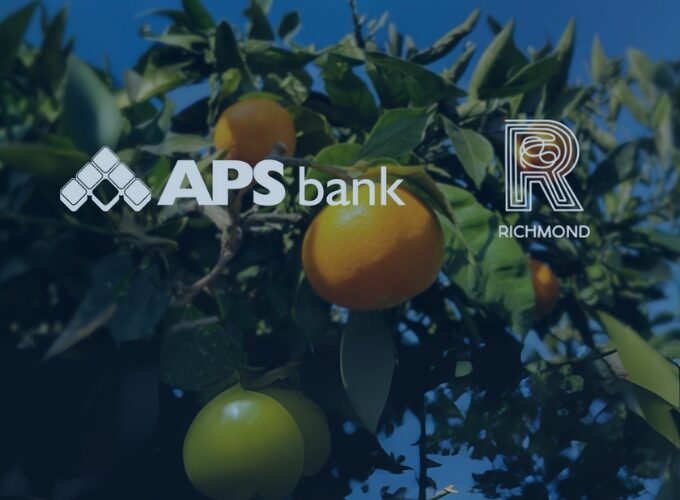Hailey Borg
Artificial intelligence (AI) has become a contentious topic in the education sector. Some educators fear that AI will diminish the human element of teaching, while others view it as a valuable learning opportunity for students.
Although AI is becoming increasingly integral to education, it is essential to evaluate its potential benefits and drawbacks before its widespread implementation in classrooms.

Methodology
This report incorporates secondary research and data from a survey conducted with 37 teachers at MCAST’s Institute for the Creative Arts. The survey, administered via Google Forms, gathered teachers’ thoughts and practices regarding AI implementation in their classrooms.
.
The AI Perspective
Before examining AI’s pros and cons in education, it is crucial to understand what artificial intelligence entails and its growing presence in daily life. According to Hamilton (2023), AI refers to machines performing tasks traditionally carried out by human minds. AI-powered programs can now replicate human decision-making, problem-solving, and learning using various data sources.
The emergence of language-processing chatbots like ChatGPT, launched on November 30, 2022, brought significant attention to AI. However, AI had already been integrated into people’s lives through online chess games, Apple’s Siri, and Instagram feeds long before ChatGPT’s debut (Marr, 2023; Hamilton, 2023)

AI’s Role in the Education Sector
“AI in education can act like a double-edged sword,” argues Dr. Patrick Camilleri in a Times of Malta article (2023). Camilleri notes that ChatGPT can provide biased and incorrect answers, potentially reducing student productivity. Conversely, AI can foster creativity and increase student participation (Times of Malta, 2023)
A Forbes survey on AI’s influence in education found that over half of the teachers surveyed believed AI positively impacts education, while less than one in five saw a negative impact. According to the survey, 60% of educators use AI in the classroom, whereas 35% do not (Hamilton, 2023)
AI has the potential to enhance learning, especially through educational games and adaptive learning platforms. In the Forbes survey, 51% of teachers reported using AI-powered educational games, and 43% used adaptive learning platforms (Hamilton, 2023). Additionally, chatbots are becoming valuable support tools, with 43% of teachers incorporating them into their classrooms (Hamilton, 2023)
AI benefits teachers by automating grading, planning, and providing lesson plans, which can reduce workload and increase direct contact time with students (Hamilton, 2023). However, Walden University (n.d.) highlights several negatives of AI in education, including cheating and student isolation. The Forbes survey revealed that 64% of teachers have seen AI used as an essay generator by students (Hamilton, 2023)
UNESCO (2019) acknowledges AI’s potential to address educational challenges and evolve learning practices but warns of risks that outpace policy debates and regulatory frameworks. In response, UNESCO introduced the Beijing Consensus, a publication aimed at education policymakers to navigate AI’s challenges and opportunities in education (UNESCO, 2019).
Primary Research Survey Findings
Thirty-seven teachers responded to the survey on AI implementation in their classrooms in Malta. While there is a global understanding of AI’s pros and cons in education, it was insightful to learn the perspectives of these local teachers.
When asked about their views on AI in the classroom, 70.3% of respondents considered AI a great tool for enhancing learning, while 21.6% believed it could harm students and teachers. Twenty respondents used AI in their teaching, while fifteen had not. These findings suggest that although AI is being integrated into classrooms, many teachers are still figuring out how to incorporate it effectively into their lesson plans.
Teachers using AI primarily employed educational games, followed by tutoring systems and tools like Photoshop’s AI (Hamilton, 2023). The pattern mirrors the results of the Forbes survey, where educational games were popular for helping students understand topics better.
However, the fifteen teachers who had not used AI cited a lack of knowledge and its nascent stage as reasons. This aligns with Dr. Patrick Camilleri’s (2023) suggestion that teachers must be prepared to channel AI technology to achieve educational standards (Times of Malta, 2023).
More than half of the respondents had encountered students using AI to cheat on assignments, predominantly through essay generators, chatbots, or voice assistants (Hamilton, 2023). Despite concerns about AI replacing teachers, 97.3% of respondents believed that it would not happen. The teachers emphasised the irreplaceable human element in teaching and the importance of integrating AI into their teaching styles.

The survey data and various sources indicate that while most teachers are interested in incorporating AI into their classrooms, they do not believe it will replace their jobs. AI will continue to develop and integrate into daily life. To prevent negative impacts on education and employment, strong protocols must be established to ensure AI is used as a tool rather than a replacement.
Hailey Borg is a freelance social media manager currently advancing her expertise through pursuit of an Advanced Diploma in Photography at MCAST. With a strong foundation in design cultivated from completing two courses at ICE Malta, specialising in UX and graphic design. For inquiries, please reach out to her at hailey2004.borg@gmail.com.
You Might Also Like

Latest Article
What Happens When A Whole Generation Wants More Than The Market Can Pay?
Gen Z in Malta is entering the workforce with a number in mind: €25,000. According to a recent survey of nearly 3,000 young people aged 16 to 25 commissioned by FreeHour, two-thirds expect a starting salary at or above that figure. On the face of it, that may sound optimistic. For many businesses, particularly … Continued
|
5 July 2025
Written by Yannick Pace

Survey Reveals Gen Z in Malta Wants Better Pay, Smarter Leadership, and A Life They Can Afford
|
5 July 2025
Written by MeetInc.

APS Bank And Richmond Foundation Host Mental Health Webinar For Pension Scheme Members
|
5 July 2025
Written by MeetInc.











